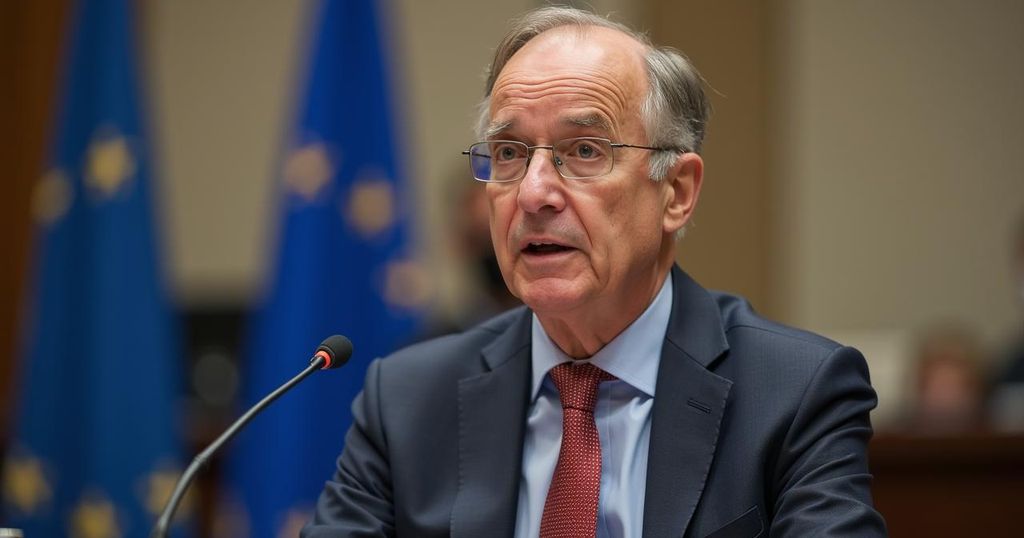Greek Official Critiques EU for Migration Policy Failures Amid Displacement Crisis

Sofia Voultepsi, Greece’s Deputy Minister for Migration, has criticized the European Commission for its failure to implement effective migrant deportation policies and has called for a unified approach to asylum and integration. She highlighted the growing pressures from war and climate change on migration flows into Europe, noting that Greece remains a key entry point for migrants.
In a recent conference near Athens, Sofia Voultepsi, Greece’s Deputy Minister for Migration, criticized the outgoing European Commission for its inadequate handling of migration policies, particularly regarding deportation. She emphasized that while a new European Union migration pact was established earlier this year, its implementation remains incomplete, particularly concerning the essential procedures for returning migrants. Voultepsi articulated the need for a cohesive system encompassing asylum, returns, and integration for migrants. She cautioned that ongoing conflicts in regions such as the Middle East and Africa, compounded by climate change, are likely to exacerbate displacement issues facing Europe. Voultepsi voiced concern over the increasing number of refugees in Lebanon amid Israeli airstrikes on Hezbollah and highlighted the dire conditions in countries like Somalia, Ethiopia, and South Sudan, where war and environmental challenges are driving more people to flee towards Europe. Greece remains a crucial entry point for migrants, primarily from Turkey and Libya, often traveling in perilous conditions. Recently, the Greek coast guard rescued 81 migrants from a vessel en route from Turkey to Italy, with reports that they had each paid significant sums to undertake the journey. Moreover, developments in other European countries reflect the changing approaches to migration. Notably, an Italian navy ship is anticipated to deliver a group of 16 migrants to Albania, where their asylum requests will be processed under a recent agreement. Additionally, in Poland, Prime Minister Donald Tusk has proposed a temporary suspension of the right to asylum, which will require parliamentary approval for enactment. This shift in policy highlights the evolving landscape of EU migration strategies amid ongoing humanitarian challenges.
The European Union has been grappling with significant migration pressures, particularly as conflicts in the Middle East and Africa, alongside climate-related disasters, contribute to increased displacement. In recent years, the EU has sought to reform its migration policies through various agreements aimed at creating a unified approach among member states. However, critics argue that these frameworks often lack the necessary enforcement mechanisms to address the complexities of migration effectively. Greece, serving as a primary entry point for migrants, faces unique challenges in managing the influx while navigating EU directives and addressing humanitarian needs.
In conclusion, Sofia Voultepsi’s remarks underscore the pressing need for the EU to develop a comprehensive and effective migration policy that addresses deportation, asylum, and integration amid growing global displacement driven by conflict and climate change. The recent circumstances surrounding migrants in Greece, Italy, Albania, and Poland reflect the urgent and complex nature of these issues, necessitating coordinated efforts from EU member states to establish viable solutions to the migration crisis.
Original Source: apnews.com








